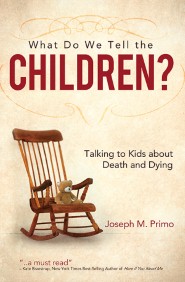Somehow I held back the tears, the ones brimming in my eyes, sobs wanting to escape my throat. Somehow I held back, somehow I keep calling -- can you help me find a home for The Boys? It was January 2014, what locals here in Wisconsin will remember as Polar Vortex season, and my mother was dying. What would happen to The Boys, her kitty cats? With three cats of our own, two of which were seniors, plus two young children and a dual self-employed couple -- our home was not a viable option.
Sitting in my car, with illumination from the lamp post in the parking lot of the building I was scheduled to speak at in less than 30 minutes. Channeling my estate planning attorney self, quieting the daughter inside, I kept calling. Our local shelter, a local feral cat rescue, our family vet. The answer over and over, sorry we cannot help.
It was my family vet that told me, ever so gently, that if The Boys went to our county animal rescue they would likely be put down after a week. Two twelve year old males, both with health issues. Adoption was unlikely, especially if they were to be kept together. My mother was fading in hospice care, and I was desperate not to deliver her beloved cats to kitty death row. I could not change my mother's fate, but I could help the two cats my parents had both adored in life.
It was our cat sitter, who I refer to as Saint Angela, that opened her heart and home to The Boys. And I opened my wallet, offering to help her each and every month to cover medical and medication bills for their lifetime. Pet lovers -- have you ever asked what will happen to your furry four-legged friends? Whether your animal companions are dogs, cats, birds, snakes, or backyard chickens -- who will be there for them? How will their vet bills, food, grooming, etc. be paid for?
Looking back at my mother's situation, I would have made two recommendations. First, have a distinct paragraph in her power of attorney for finance related to expenditures for her pets. A power of attorney allowed me to act for her in a financial capacity, and pets are actually someone's property. Remember, one may be sick for an extended time, likely moving to a facility where pets are not allowed. Second, her will could have contained a pet trust -- a small trust, created at death, to hold both the animals and a small amount of cash from which to pay future expenses.
Typical mass-produced estate planning materials talk about generation skipping taxes, the benefits of living revocable trusts, how to create a foundation. In reality, most of those issues are not a concern for middle class Americans. Yet, as of 2012, 62 percent of households had at least one pet, making planning for your pets care an important issue to address. Even a simple plan would be better than nothing. Survey friends and family about who would be willing to open their heart and home. Display your pet's veterinarian's phone number, and note any special foods or medications a pet is prescribed. An ounce of planning today will make a huge difference if and when your pet needs a new home because you are no longer able to provide one.
Buddy
and
Kully
aka The Boys











